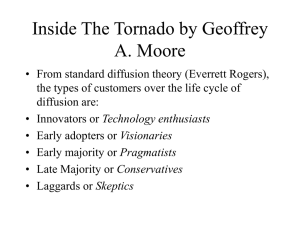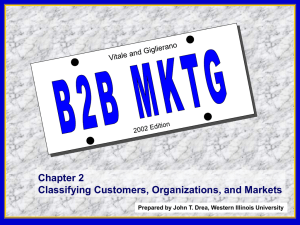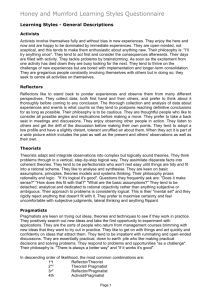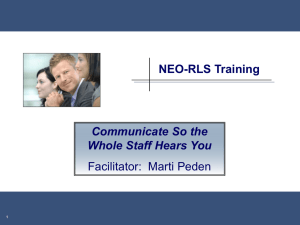TCG2 - Chasm Group
advertisement
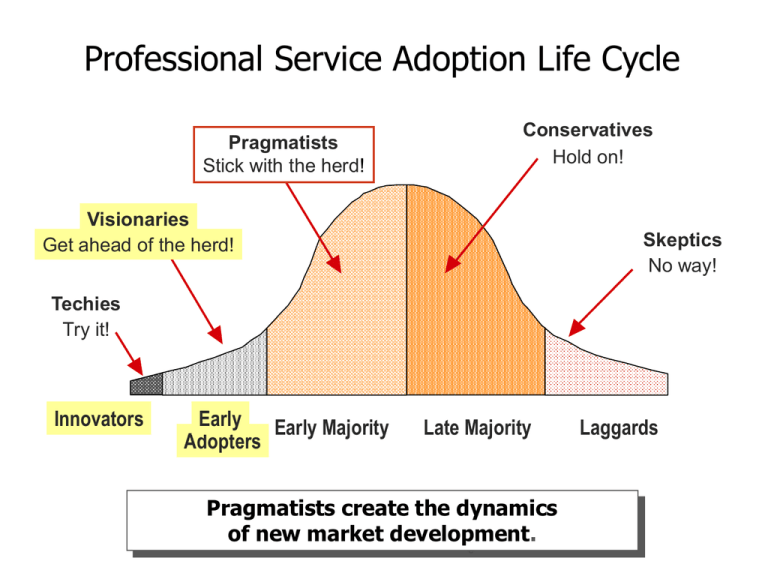
Professional Service Adoption Life Cycle Pragmatists Stick with the herd! Conservatives Hold on! Visionaries Get ahead of the herd! Skeptics No way! Techies Try it! Innovators Early Early Majority Adopters Late Majority Pragmatists create the dynamics of new market development. Laggards Early Adopters – The Visionaries Primary Motivation • Gain dramatic competitive advantage via revolutionary breakthrough Key Characteristics • • • • Great imaginations for strategic applications Attracted by high-risk, high-reward propositions Will commit to supply the missing elements Perceive order-of-magnitude gains — so not price-sensitive Challenges • • Want rapid time-to-market Demand high degree of customization and support Key Role: Assist with development of product and establish track record of success Early Majority – Pragmatists Primary Motivation • Gain sustainable productivity improvements via evolutionary change Key Characteristics • • • Understand real-world issues and tradeoffs Focus on proven applications Prefer market leaders Challenges • • Insist on good references from trusted colleagues Want to see the solution in production at the reference site Key Role: Gatekeeper to the mainstream market Late Majority – Conservatives Primary Motivation • Avoid competitive disadvantage Key Characteristics • • • Risk averse Price-sensitive Usually reliant on a single, trusted advisor Challenges • • Need completely ready-made solutions Would benefit from value-added services but do not want to pay for them Key Role: Extend product life cycles Model Breaks Down at Key Transition Visionaries vs. Pragmatists • Adventurous • Prudent • Early buy-in attitude • Wait-and-see • Think “big” • Manage expectations • Independent of the “herd” • Part of the “herd” • Spend big • Staying power • First use capability • Think Visionaries are dangerous • Spend to budget • Think Pragmatists are pedestrian Pragmatists are very selective in the Visionaries they trust as references.
